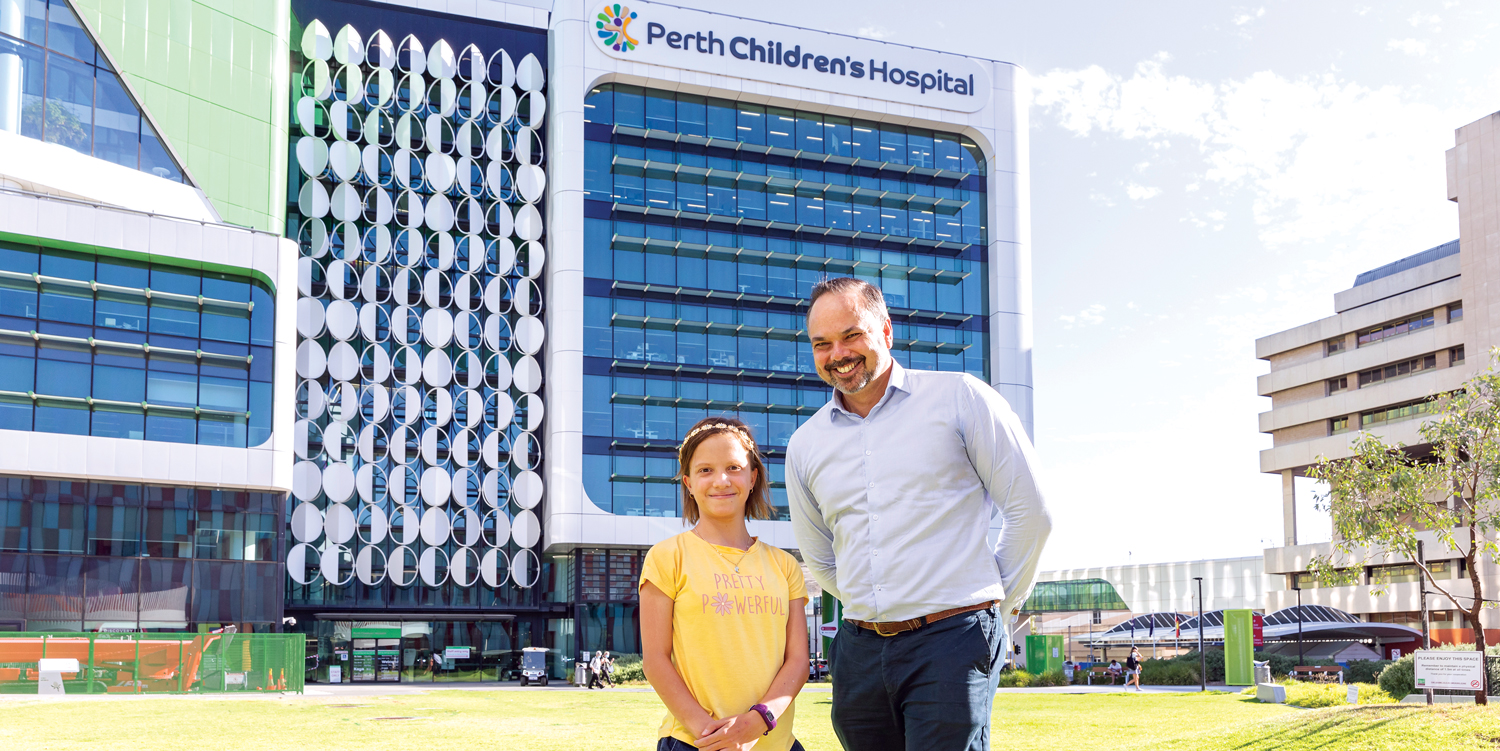 Perth is set to become home to a world-first centre to improve the lives of children born with uncommon diseases.
Perth is set to become home to a world-first centre to improve the lives of children born with uncommon diseases.
With almost three-quarters of these diseases starting in childhood, it is logical that a new global initiative to deal with rare diseases be based at a children’s hospital.
PCH is the hub for the Rare Care Centre, which will connect medical experts from around the world who deal with uncommon and undiagnosed conditions.
The project was launched last month after securing funding from several leading WA philanthropists who have pledged $10m over five years, starting from July.
They include the Angela Wright Bennett Foundation, the McCusker Charitable Foundation via the Channel 7 Telethon Trust, the Stan Perron Charitable Foundation and the Perth Children’s Hospital Foundation using a significant contribution from Mineral Resources Limited.
The Rare Care Centre will link national and international specialists, incorporating clinical and non-clinical services, with a focus on Aboriginal health and mental health, with the aim to improve awareness and early identification of children with potential rare diseases.
This early detection will allow for a more accurate diagnosis and better access to community resources, clinical trials and research. It will also connect children and their families with education and disability services.
Clinical geneticist and the centre’s medical director, Dr Gareth Baynam, said the aim was to improve the lives of children and young people living with a rare disease and their families by providing a globally connected model of care.
“Although they are called ‘rare’, cumulatively the impact of rare diseases is massive,” Dr Baynam said. “This is an area of such severe and large unmet need – rare and undiagnosed diseases are like a hidden, global endemic.”
He said these children and adolescents and their families living with rare and undiagnosed diseases were on two journeys.
“Firstly, just attaining a diagnosis is distressing and complex. On average it takes five years to get a diagnosis for a child with a rare disease,” Dr Baynam said. “That’s five years of uncertainty, mental distress and isolation.
“Secondly is the care journey, with only 6% of rare diseases having a specific drug treatment. “
Child and Adolescent Health Service chief executive Dr Aresh Anwar said collaborations like the new centre would help drive innovation in developing and delivers support services.
“For the families of children living with a rare or undiagnosed disease, it is a game-changer to know there is a dedicated centre to provide a comprehensive and coordinated treatment plan and deliver access to a global network of specialists and families living with the same diagnosis,” he said.
The centre will work with world-leading rare diseases experts, including the World Health Organization’s Global Network for Rare Diseases.

